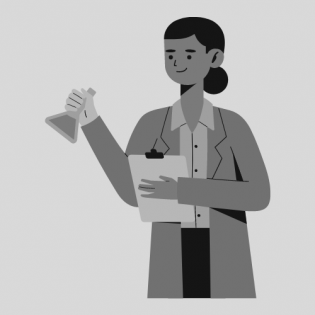Questions of Courage
Young people use their voice to speak up for injustice and take action for the common good.
The learner will:
- identify current examples of injustice, prejudice, and racism today.
- use language and images to make a statement about each person's responsibility to be equitable.
- Learning to Give Simple Safe Service Projects: Advocacy Poster or ABCs of Advocacy.
- This Advocacy guide provides background on ways for youth to use their voice for change.
Instructions
Anticipatory Set:
Talk about first impressions. Our natural instinct is to make assumptions about people. What happens after we get to know someone?
Explain: Our long history of racism built a system of false assumptions (many deliberately started in order to maintain power). These ideas were reinforced by lack of awareness, prejudice, and careless language so much that it is hard to change this system of false assumptions that has cruelly affected people of color. Review the stories of African American scientists in the previous two lessons.
Unless people become aware and question where ideas come from, they don't change. We can become aware and change our own ideas, and we have some influence over others.
Reall stories of perseverance and courage in the face of discrimination. How can we as young people show courage to speak up when we see unfair treatment or discriminatory language used against someone for race, faith, gender, or other identities? Discuss.
These two service projects may be a guide for making people aware of the language we use and the way we treat each other that either puts up barriers or encourages equity. Advocacy Poster or ABCs of Advocacy.
This Advocacy guide provides background on ways for youth to use their voice for change.
Philanthropy Framework
-
Strand PHIL.II Philanthropy and Civil Society
-
Standard PCS 02. Diverse Cultures
-
Benchmark MS.5 Discuss examples of groups denied their rights in history.
-
-
Standard PCS 05. Philanthropy and Government
-
Benchmark MS.12 Identify the dilemma of minority rights in a pure democracy.
-
-
-
Strand PHIL.III Philanthropy and the Individual
-
Standard PI 01. Reasons for Individual Philanthropy
-
Benchmark MS.2 Explain and give examples of enlightened self-interest, egoism, and altruism as they relate to philanthropy.
-
Benchmark MS.4 Identify and describe the actions of how citizens act for the common good.
-
-
